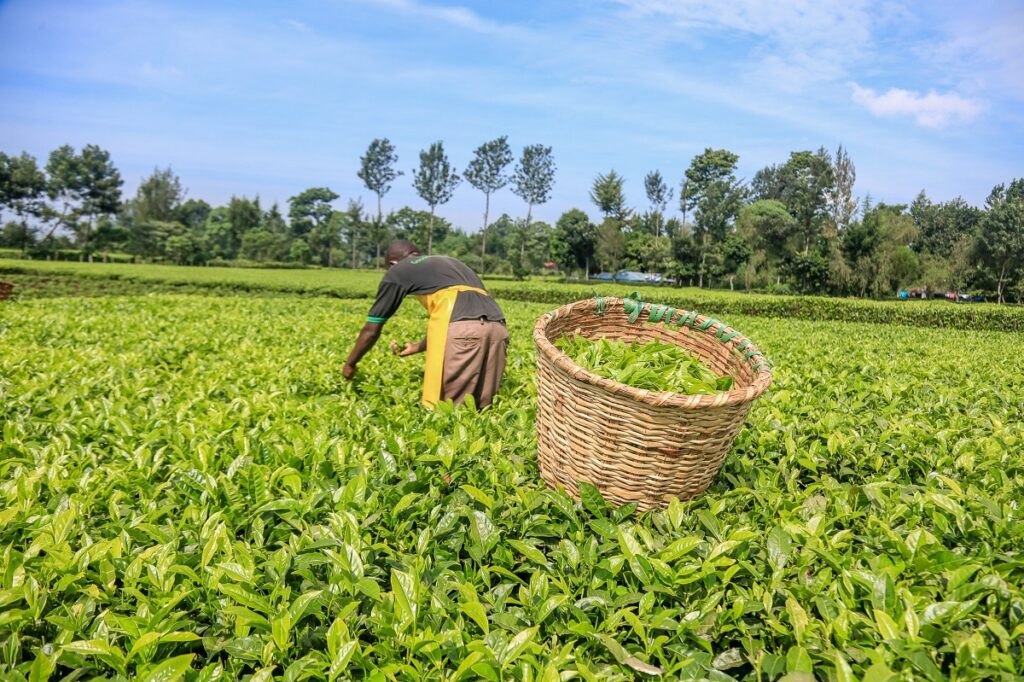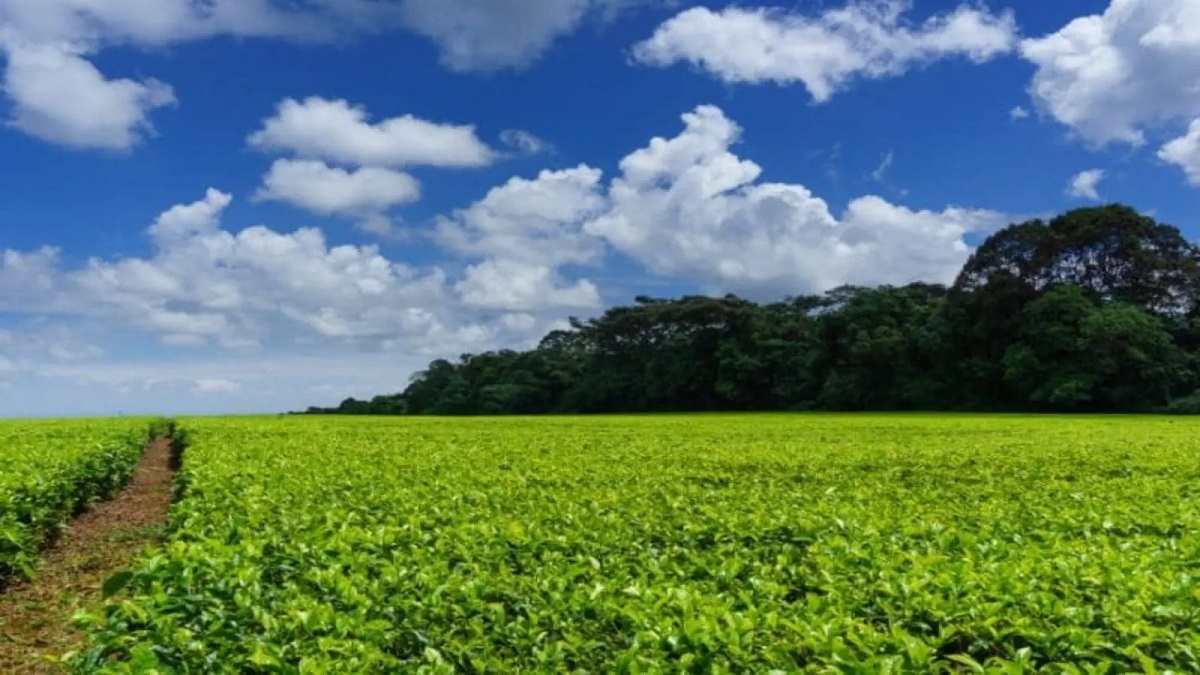Tanzania tea steams ahead in expanding global markets
- The market share of Tanzania tea is gaining ground globally.
- To boost growth momentum, Tanzania has appointed former beauty pageant as tea ambassador.
- Currently, China leads global tea production and market, too.
Tanzania tea output is increasing and gaining global popularity, latest figures from Tanzania Tea Board (TBT) show that the country’s green leaf is now ranking as the fourth largest export crop.
In an update following a stakeholders meeting to explore strategies to enhance the update of the export crop, TBT called on sector players to ride on “superior quality of Tanzanian tea” to increasingly push for its “recognition on the international stage.”
TBT Acting Director Beatrice Banzi said the tea sector is crucial for Tanzania’s economy and that the government has put in place efforts to enhance the country’s competitiveness in the global tea market.
As part of it’s efforts, the country has appointed Nargis Mohamed, a former Miss Tanzania runner’s up to advocate Tanzania’s tea on the international stage.
She also lauded the Board’s efforts to promote the tea sector and pledged to dispel any negative perceptions about Tanzanian tea.
She also commended the positive performance of Tanzania tea in the international market, which she said now enjoys a reputable status.
On his part, Jones Sikir, the Executive Director of the Tanzania Association of Tea Growers (TAT), advised TBT to supervise tea companies closely to ensure that high-quality tea is consistently marketed.
The executive cautioned against sending lower-grade tea to international markets, which he said could tarnish Tanzania’s reputation among global competitors.
In response, Banzi reassured stakeholders that her office is committed to addressing challenges within the tea sector, particularly in stabilizing prices for the benefit of farmers and the entire industry. She affirmed TBT’s crucial role as a regulator in the tea sector, and said they are actively working to resolve stakeholders’ concerns.

Read also: Dry weather spell sours Kenya’s first quarter tea exports
Flavor of Tanzania tea on a global stage
Tanzanian tea has a rich history and a distinct flavor that sets it apart from other teas, TBT asserts. The country’s tea industry dates back to the early 20th century when British introduced cultivation of the cash crop.
Since then, TBT says, Tanzania has become one of Africa’s leading tea producers, known for its high-quality leaves and unique taste. According to the board, Tanzania’s climatic conditions, including high altitude, ample rainfall, and fertile soil, provide the perfect environment for tea farms.
“This combination results in robust, flavorful, and aromatic tea. Tanzanian tea is often described as having a malty and brisk flavor, making it a favorite among tea connoisseurs worldwide,” Banzi told media.
The Acting Director maintains that tea is not just a beverage in Tanzania but rather, it is a significant part of the culture and daily life. “Families and friends often gather over a cup of tea, sharing stories and building connections. Tea ceremonies and social gatherings often revolve around tea, highlighting its importance in Tanzanian society,” Banzi detailed.
Banzi said public figures such as Nargis Mohamed promote Tanzanian tea to reinforce this cultural significance. “By encouraging people to buy and enjoy local tea, she is helping to preserve and celebrate a vital part of Tanzanian heritage,” Banzi added.
According to the TBT, the tea industry is crucial to Tanzania’s economy, providing employment and income for thousands of farmers and workers. “The government’s efforts to invest in agriculture, have been instrumental in supporting the tea sector,” TBT said in the press communique.
“These investments have led to improved infrastructure, access to modern farming techniques, and better market opportunities for farmers,” reads the media report.
TBT has been at the forefront of these efforts, working to ensure that Tanzanian tea maintains its high standards and remains competitive in the global market, the report details.
“By promoting sustainable farming practices and supporting farmers, the TBT is helping to secure the future of the tea industry in Tanzania,” TBT emphasizes.
The former beauty pageant, herself an investor in the avocado industry, said the future of Tanzanian tea looks promising, thanks to the combined efforts of the government, industry stakeholders, and advocates like herself.
“The continued promotion of Tanzanian tea on the global stage will help to secure new markets and increase demand,” she said.
She said innovations in farming practices and investments in technology will further enhance the quality and yield of Tanzanian tea.
“The focus on sustainability and ethical farming practices will ensure that the tea industry continues to thrive while preserving the environment,” she notes.
Also Read: Tanzania unit fuels Equity Group to $267 million half-year net profit
Global tea industry smells good
The growth in global tea output is mainly driven by expansion in China, this according to the Grandview Research report titled ‘Tea Market Size, Share & Trends Analysis Report 2025.’
According to the report, production in the country (China), increased annually by 5.9 percent, from 1.92 million tonnes in 2013 to 3.34 million tonnes in 2022, as a result of growing domestic demand and of increased consumer health consciousness.
It goes on to note that the global tea market size was valued at $17.42 billion in 2024 and is projected to reach $24.61 billion by 2030, growing at a CAGR of 6 per cent from 2025 to 2030.
The report says the market growth is attributed to the rising health consciousness among consumers, who are increasingly aware of the health benefits of tea, including its ability to reduce inflammation and promote relaxation.
“Asia Pacific dominated the global tea market with a revenue share of 34.7 per cent in 2024,” reads the report in part.
U.S. tea market is also expected to grow significantly over the forecast period. “By product, the black tea segment dominated the market with the revenue share of 38.8 per cent in 2024,” it reports.
By distribution channel, the hypermarkets & supermarkets segment dominated the market with a share in 2024 bit it is the Middle East and Africa that have the fastest growing market, says the report.
It goes on to point that, the demand for organic and premium teas is surging, with consumers seeking high-quality, specialty, and artisanal tea varieties.
Furthermore, says the report, rapid growth in green tea consumption, valued for its antioxidant properties, continues to expand the market.
“In addition, the demand for organic tea increased, driven by consumer demand for alternatives to natural and environmentally friendly products.”
The popularity of flavored and herbal teas is also contributing to market growth, as these products cater to a wide range of consumer tastes and preferences, details the report.
Furtherstill, the rise of e-commerce and direct-to-consumer channels has made it easier for consumers to access a diverse range of tea products, further driving market expansion.
In addition, the growing disposable incomes in emerging economies are leading to increased tea consumption, as more people can afford to indulge in this beverage.
Share this content:





Post Comment